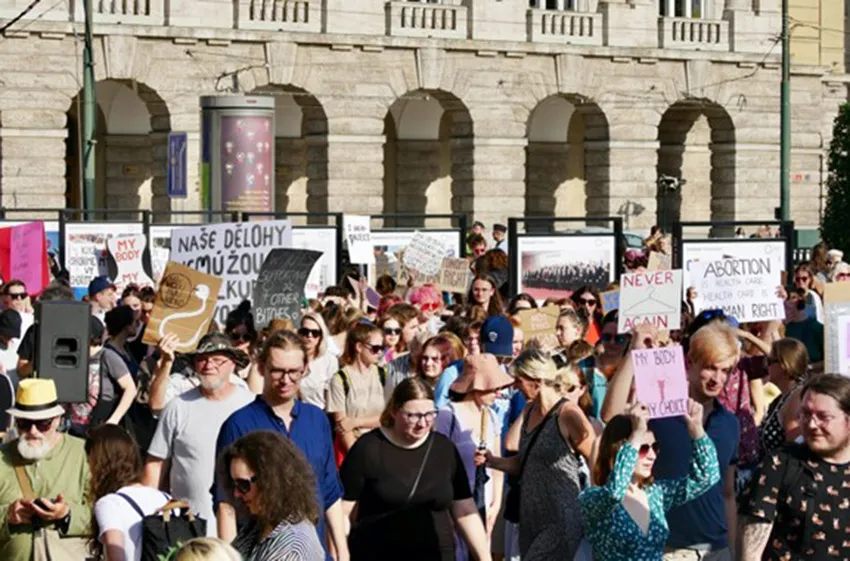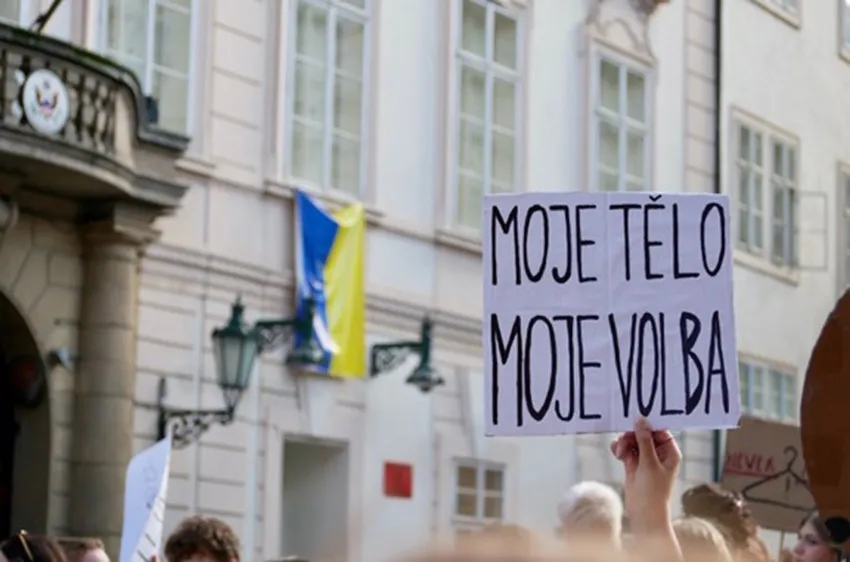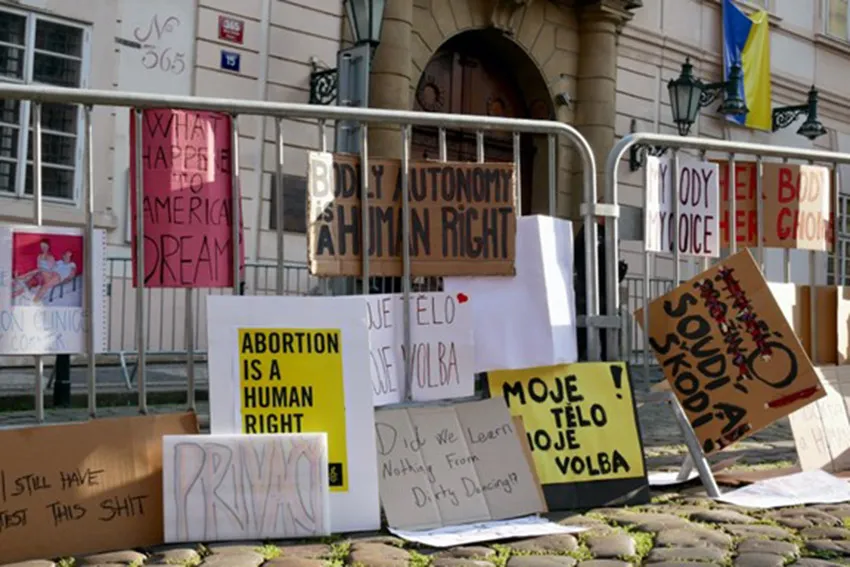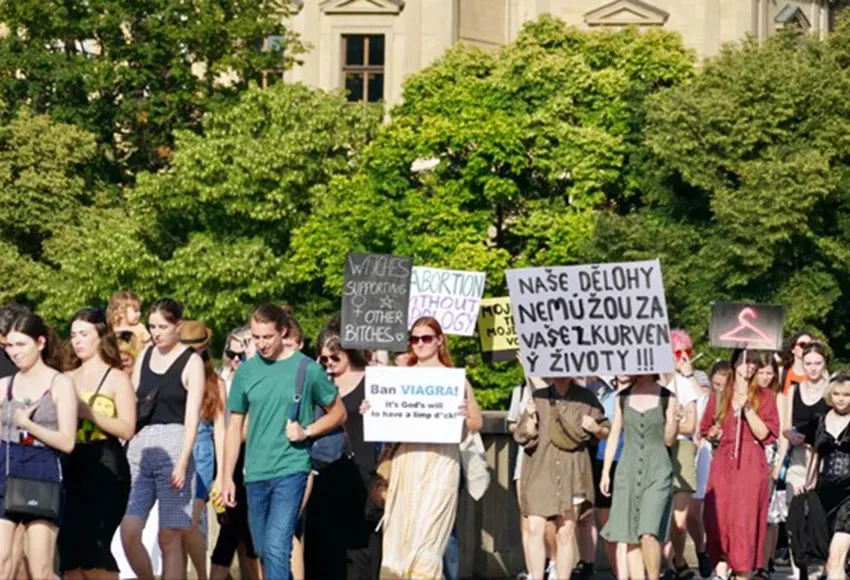Around 5:30 p.m. on Thursday, June 30, over 200 people gathered in Prague's city center in response to the US Supreme Court's recent overturning of Roe v. Wade, which had previously protected the right to abortion at the federal level.

The protest began at nám?stí Jana Palacha (Jan Palach Square), between the banks of the Vltava River and the historic Jewish quarter. With signs in hand and slathered in sunscreen, the crowd first listened to speakers from the social reform group Konsent, which works to prevent and dispel myths about sexual violence by creating educational workshops for bars, clubs, universities, parents, and teachers. Since 2021, Konsent has been working with Amnesty International, the Czech Women's Lobby, and Women in Law to change legislative definitions of rape and sexual assault in the Czech Republic's criminal code.

After speeches to the crowd, Konsent representatives led protesters across the Manes Bridge and through the Mala Strana (Lesser Town) neighborhood, eventually arriving outside the US embassy. The march through one of Prague's most commercialized neighborhoods garnered attention from dozens of tourists, blocked traffic, and stalled public transportation. As the march continued, leaders and protesters began a call-and-response of chants in Czech, calling out "Práva žen jsou lidská práva" (Women's rights are human's rights) and "Patriarchát do odpadk?" (Patriarchy to the garbage).
Natalie, a recent college graduate and native Czech resident, was drawn to the protest to show support to Americans both in the US and living abroad as expats. "I didn't want to watch this happen to so many people and not do anything," she explained. "If there's nothing else that we can do here in the Czech Republic, then this is what we're gonna do!"

As they continued, people conversed in several languages, and held signs written in both Czech and English. While the protest focused on the overturning of Roe v. Wade and the status of abortion in the United States, it quickly became clear that, for those from the Czech Republic – and for anyone not from the US – this issue also strikes a personal chord.
"If we're talking specifically about Czech women being here, I think it's the fear that the Czech [Republic] has become quite westernized, and therefore we're kind of worried that we might follow the United States with similar legislation changes in the future," Natalie continued, touching on a growing agitation among many Czech residents.
As much as Natalie was drawn to protest in solidarity with American citizens, she, like many other Czechs, also came to fight for her own rights.
"This is also, like, us showing the government that we're noticing. We just want them to know that we're holding onto these rights tooth and nail, and we're not gonna let go," she concluded.
Gretchen, a preschool teacher in Prague originally from Wisconsin, summed up an experience most American expats share: "I felt kind of helpless being so far away from home." Many US citizens abroad describe such feelings of hopelessness and discouragement when watching from overseas as issues like this unfold in their home country. "I'm still trying to figure out the best way to contribute from here," she added.
As American expats and Czech residents alike marched to fight or prevent these changes in the law, the issue also resonated with Queer protesters, who now fear that other LGBTQIA+ issues and rights could be targeted next.
Leah, a 19-year-old Czech student who identifies as Queer, discussed her concerns about what this decision might mean for the future. "When the far right sees that things are going how they want, they're only going to want more. They're not going to stop here. They're going to go for Gay marriage and Trans rights, and women's rights in general," she said. "This is just the beginning."
After occupying space outside the US embassy for over an hour, protesters made sure to leave their signs out for display before returning home. By 7:30 p.m., Tržišt? Street was lined with remnants of the day's events, temporarily preserving the passion and devotion of those involved.
Protests died down completely by the end of the night, but for people across the globe – in the US, the Czech Republic, or anywhere else – the fight isn't over yet.


